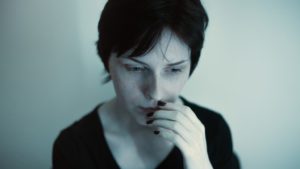To mark Day 1 of the 16 Days of Activism when we Orange The World, our Domestic Abuse lead Pauline, reflects on the heavy price paid in violent abuse cases – not only by the victims but also by witnesses who may end up in life changing witness protection…
I was recently watching a programme on Honour Based Abuse about a young girl and her family. It ended tragically in her death at the hands of her father and uncle.
The story is almost too sad to watch and it’s hard to believe how a family, who should protect and support their children, could act in such a violent way. At the end of the film a family member, her sister, who had given evidence against the accusers, was offered Witness Protection but declined. That got me thinking…Why would you refuse this when it is designed to protect you? She has now taken Witness Protection measures because she feels vulnerable to attacks from other relatives although her father and uncles are still in prison. This sparked my interest as I knew nothing about the scheme as by its very nature it needs to be covert.
 To be offered and enter a Witness Protection scheme – which is now called the Person Protection Service (PPS) – you have to be in fear for your life.
To be offered and enter a Witness Protection scheme – which is now called the Person Protection Service (PPS) – you have to be in fear for your life.
I don’t think many of us could understand how that feels – it must be terrifying. It literally means taking on a completely new life away from everything that is familiar, and often in another part of the UK. Everything about you is wiped away. There is no contact with family and friends, you are given a new name, identity, passport, accommodation, job – in short you become a new person in a new life, and if children are involved it is even more complicated.
The Protected Person Service is coordinated by the National Crime Agency, and the level of service they can offer is dependent on the level of threat. An Assistant Police Commissioner who leads on this service describes what is on offer by explaining they try to replicate the person’s current lifestyle closely. “Its not glamorous. You don’t get a nice big house with loads of money in your bank. There is no getting away from it, this is a life changing experience. No one has been critically injured or killed on the scheme, but some have been found – usually when they compromise themselves by returning to the original location.”
I quote one victim when she said, “My punishment, my sentence that I have had to live with was worse than the rape and sustained intimidation by his family and friends. If I was in prison [at least] I would have visits from my family.”
She had repeated that she did not want to give evidence in court and you can understand why she feels like this. Over 27% of prosecutions fail due to the witnesses declining to give evidence because they fear reprisals. Should she give evidence her ordeal would become public, it could reinforce the defendant’s hold over her, and she would have to relive the offence and expose aspects of her life-style which she may prefer to keep private.
 It must take immense courage to stand in front of your perpetrator also knowing the defence lawyer may verbally attack your recall of the events.
It must take immense courage to stand in front of your perpetrator also knowing the defence lawyer may verbally attack your recall of the events.
Recently in August this year the Ministry of Justice announced that Courts in London and Kent will now allow vulnerable victims new courtroom protection by allowing in court video evidence from a survivor. The evidence must be filmed close to the event to allow for good recall but importantly the survivor will not have to attend the Court in person. Dame Vera Baird, the Victims Commissioner and a Soroptimist herself, applauded the move and encouraged the scheme to be rolled out to the rest of the UK.
Any new initiative like this takes years of campaigning, raising awareness and listening to survivors’ stories. This latest one is proof that change can happen and that Soroptimists can and do contribute by actively campaigning for change and supporting the victims.
When you ask a Soroptimist why they joined the organisation, the vast majority will say they want to make a difference usually to women’s lives, but of course we now support men’s campaigning organisations as well, against all forms of abuse.
If you’d like to know more about the work we do supporting victims of honour based abuse, take a look at Our Work and get in touch!

